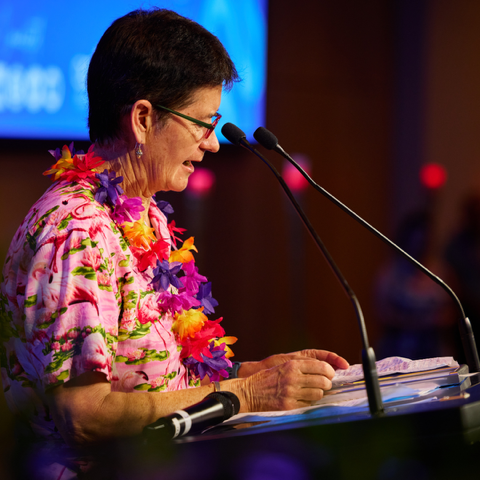When Elizabeth (Liz) Crock AM was named HESTA Nurse Practitioner of the Year by the Australian College of Nurse Practitioners (ACNP), her reaction was one of gratitude and humility.
“It sounds like a cliche, but it is such an honour to be recognised by your peers,” says Liz. “I feel like it’s an honour for our whole team because we’ve worked on this together.”
That team is the HIV program based within the Homeless Persons Program at Bolton Clarke, where Liz has worked since 2001. She is currently a HIV Nurse Practitioner in the Homeless Person’s Program, and hopes that her recent award win will bring attention to the potential of HIV specialist nursing.
“I hope that this award can help highlight the crucial work of skilled HIV specialist nurses within such teams and help inform future [Nurse Practitioner] role development for the next generation of nurses,” wrote Liz in a LinkedIn post celebrating her achievement.
Nurses key to filling service gaps
Liz says that the flexibility and trust that in-community nurses offer is a distinct advantage in addressing the complex and intersecting needs of vulnerable populations.
“I think community-based nurses are uniquely positioned to address the needs of these client groups because we work on an outreach model and are mobile,” explains Liz. “We can meet people wherever they are at, and negotiate ways to best engage them in care.”
Many of the people Liz supports are often facing additional barriers to HIV testing and treatment which extend beyond healthcare access. This can include fear resulting from stigma, financial and housing instability, mental illness, and substance use.
To help break down these barriers, Liz and her team provide more comprehensive care by helping people navigate social and community support services.
“We may try to address an immediate need first, such as finding them legal help, or mental health care, or financial counselling, or food through a local food bank. This helps us establish a trusting and responsive relationship,” says Liz.
“We are readily available via phone, which can be a contrast with other health services which can be hard to contact at times, so we can provide initial phone advice and try to get them the care they need, and liaise with medical teams, social work and others around their health and social needs.”
In particular, Liz says that Nurse Practitioners in community settings are vital for ensuring key populations don’t fall through the cracks.
“As a Nurse Practitioner, I can order pathology tests and write prescriptions, I can also refer to specialists directly. So I’ve been able to fill in a lot of gaps and with these client groups,” says Liz. “It can often be a case they lose their prescriptions or haven’t had a blood test for a couple of years due to housing instability and being unwell, and have become disengaged from services.”
"Having a Nurse Practitioner in our team just gives us that extra layer of support to be able to step in and try and ensure people aren't running out of their medications and can have the blood tests that they require."
Serving the sector
Liz has been a member of ASHM since 1994 and has served as a Board Member and Vice President. During her three decades of involvement with ASHM, Liz has been crucial to building many of our HIV education and policy initiatives. They contributed to several advisory committees (including the COVID-19 Taskforce on HIV, Viral Hepatitis and Sexual Health), supported the campaign for nurses to become s100 prescribers, and helped guide the next generation of nurses providing clinical education as an editor.
“I was very fortunate to have been an honorary editor of the first edition of the HIV Management Guide for Clinical Care – Nursing and Midwifery.”

“Mentoring and collaborating with other nurses and midwives as they wrote their sections has been a real highlight,” says Liz. “Encouraging others to talk about their work and to publish has been an amazing opportunity through ASHM.”
For her lifetime commitment to serving people living with HIV/AIDS, Liz was recognised as a Member of the Order of Australia in the Queen’s Birthday 2021 Honours List, as well as an Honorary Life Member of ASHM.
Fighting stigma and advancing rights through workforce education
Underlying all of Liz’s education, clinical and policy work is her mission for equity, respect and social justice for people living with HIV.
Through her research, contributions to consensus statements, and panel appearances, Liz uses her voice in the sector to bring awareness to the issues facing people living with HIV and how to develop supportive and comprehensive models of care for all.
“We [as nurses] are there to protect people’s human rights to and in healthcare. It’s also about justice for everybody, so that they all have access to the best quality care regardless of the diagnosis they have,” says Liz.
Experiences of stigma and discrimination when seeking care may result in people disengaging from the healthcare system , putting their long-term health and quality of life at-risk.
To create a healthcare system which fosters a trusting and safe environment for people living with HIV, Liz says consistent workforce education is key.
“The first thing is education and people actually taking the time to educate themselves about the latest in HIV.”
Liz recommends convenient and free resources, such as the HIV Management Guide for Clinical Care for nurses and midwives, as a great starting point for nurses to ensure they are practising ethically.
“The education and mentoring opportunities provided by ASHM for the nursing profession are extensive and very accessible I think so I’d be encouraging all those with an interest to join up and contribute to ASHM’s mission,” says Liz.
Working towards a more inclusive healthcare system for people living with HIV is not the responsibility of just one individual or profession, though. Liz points to opportunities for collaboration and collective advocacy across the sector to create significant change.
“Nurses and midwives can contribute to policy, guidelines, and educational programs through ASHM, attend conferences, and network and will be sure to find a supportive group of colleagues.”
ASHM On Demand HIV courses for Nurse Practitioners
Women and HIV
Clinical Extensions of HIV
Clinical Foundations of HIV
An empowered future for HIV nurses
Liz says that recent legislative changes such as the removal of collaborative arrangement requirements are a step in the right direction for nurses to be able to deliver quality care efficiently. However, there are still barriers to nurses being able to work to their full abilities.
“I think the health workforce scope of practice review will be very useful to guide progress for nurses and to empower and properly authorise nurses to work to their full scope,” says Liz.
Liz also calls on the sector to further recognise the value of and support emerging specialist HIV nurse practitioners working in community settings, so that future nurses can realise the potential of the role and make an impact.
“I see an ongoing need for HIV specialist roles for nurses in the sector, and broadening out to encompass BBVs and STIs more comprehensively,” says Liz. “It can be hard to recruit new staff to such a small specialised field, so ensuring [nurses] can have portability for their careers will be helpful.”
Nurse Practitioners can take the next step towards integrating HIV care into local community settings by becoming a s100 Community Prescriber of HIV medications. Find out more by using our guides and training courses below.
All images on page supplied by the Australian College of Nurse Practitioners (ACNP).

